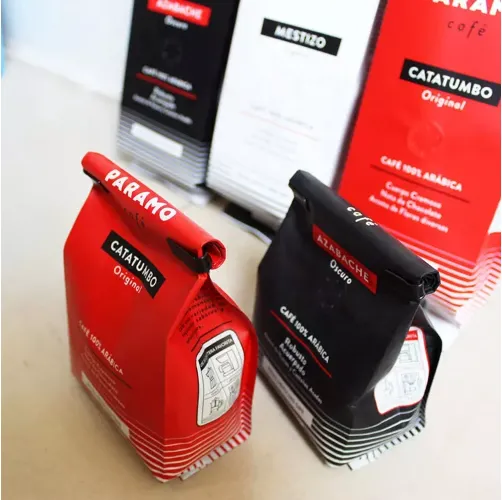- Afrikaans
- Albanian
- Amharic
- Arabic
- Armenian
- Azerbaijani
- Basque
- Belarusian
- Bengali
- Bosnian
- Bulgarian
- Catalan
- Cebuano
- chinese_simplified
- chinese_traditional
- Corsican
- Croatian
- Czech
- Danish
- Dutch
- English
- Esperanto
- Estonian
- Finnish
- French
- Frisian
- Galician
- Georgian
- German
- Greek
- Gujarati
- haitian_creole
- hausa
- hawaiian
- Hebrew
- Hindi
- Miao
- Hungarian
- Icelandic
- igbo
- Indonesian
- irish
- Italian
- Japanese
- Javanese
- Kannada
- kazakh
- Khmer
- Rwandese
- Korean
- Kurdish
- Kyrgyz
- Lao
- Latin
- Latvian
- Lithuanian
- Luxembourgish
- Macedonian
- Malgashi
- Malay
- Malayalam
- Maltese
- Maori
- Marathi
- Mongolian
- Myanmar
- Nepali
- Norwegian
- Norwegian
- Occitan
- Pashto
- Persian
- Polish
- Portuguese
- Punjabi
- Romanian
- Russian
- Samoan
- scottish-gaelic
- Serbian
- Sesotho
- Shona
- Sindhi
- Sinhala
- Slovak
- Slovenian
- Somali
- Spanish
- Sundanese
- Swahili
- Swedish
- Tagalog
- Tajik
- Tamil
- Tatar
- Telugu
- Thai
- Turkish
- Turkmen
- Ukrainian
- Urdu
- Uighur
- Uzbek
- Vietnamese
- Welsh
- Bantu
- Yiddish
- Yoruba
- Zulu
Understanding Organic Labeling Practices and Their Impact on Consumer Choices
Understanding Organic Labelling A Guide to Making Informed Choices
In recent years, the popularity of organic products has soared, leading to a surge in the prevalence of organic labelling. These labels are not simply marketing tools; they represent a commitment to sustainable agriculture, environmental preservation, and health-conscious practices. With so many products on the shelves sporting organic labels, understanding what these labels mean and their implications is crucial for consumers striving to make informed choices.
What Does Organic Mean?
The term organic refers to a specific farming and production method that emphasizes natural processes and ingredients. Products labeled as organic are produced without the use of synthetic fertilizers, pesticides, genetically modified organisms (GMOs), and artificial preservatives. This approach aims to maintain ecological balance, promote biodiversity, and ensure humane treatment of animals. The methods used in organic farming often focus on soil health, crop rotation, and composting, which help to sustain environmental integrity.
Types of Organic Labels
Understanding the variations in organic certification can significantly impact consumer choices
1. 100% Organic Products carrying this label are made entirely from organic ingredients. This label is the most stringent and guarantees that every component is organic.
2. Organic This classification means that at least 95% of the ingredients are organic. The remaining 5% may consist of non-organic ingredients, but they must be on an approved list by the U.S. Department of Agriculture (USDA) or other certifying bodies.
3. Made with Organic Ingredients Products under this label contain at least 70% organic ingredients. While they may not qualify for a complete organic label, the organic elements must still meet strict standards.
4. Contains Organic Ingredients This label can be applied to products with less than 70% organic ingredients. While they cannot be marketed as organic, they can list the organic ingredients on the packaging.
organic labelling

The Importance of Certification
Organic labels are significant because they are regulated by governmental or independent organizations that ensure compliance with specific standards. In the U.S., the USDA oversees the organic certification process, which involves thorough inspections of farms and processing facilities. This strict regulation helps to prevent misleading claims and offers consumers a level of trust that the products they are purchasing meet high standards.
Why Choose Organic?
The rationale behind choosing organic products often stems from several factors
- Health Benefits Many consumers believe that organic products are healthier than their conventional counterparts. This belief is often rooted in concerns over pesticide exposure, antibiotic resistance, and the potential negative effects of GMOs. While research is ongoing, some studies suggest that organic foods may contain higher levels of certain nutrients and antioxidants.
- Environmental Responsibility Supporting organic farming can contribute to more sustainable agricultural practices. Organic farms often use less energy and promote biodiversity, ultimately working towards a healthier ecosystem.
- Animal Welfare Organic certification generally requires higher animal welfare standards. Animals raised organically tend to have more space, outdoor access, and a diet free from antibiotics and growth hormones.
Navigating the Grocery Aisles
While organic products can come at a higher price point, many consumers find them worth the investment for their health, environmental impact, and ethical reasons. When shopping, it’s essential to scrutinize labels and understand what they signify. Investing in organic products can not only contribute to personal health but also support a more sustainable and ethical food system.
In conclusion, organic labelling serves as a guideposts in the increasingly complex landscape of food choices. By choosing organic, consumers align their purchasing power with their values and contribute to a system that resonates with their health and environmental aspirations. As the market continues to evolve, so too will the understanding and importance of organic labels in fostering informed consumer choices.













